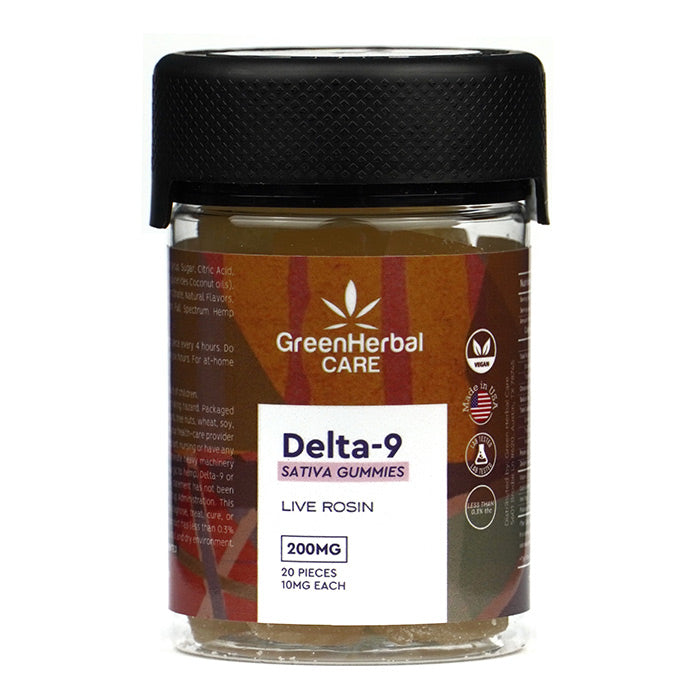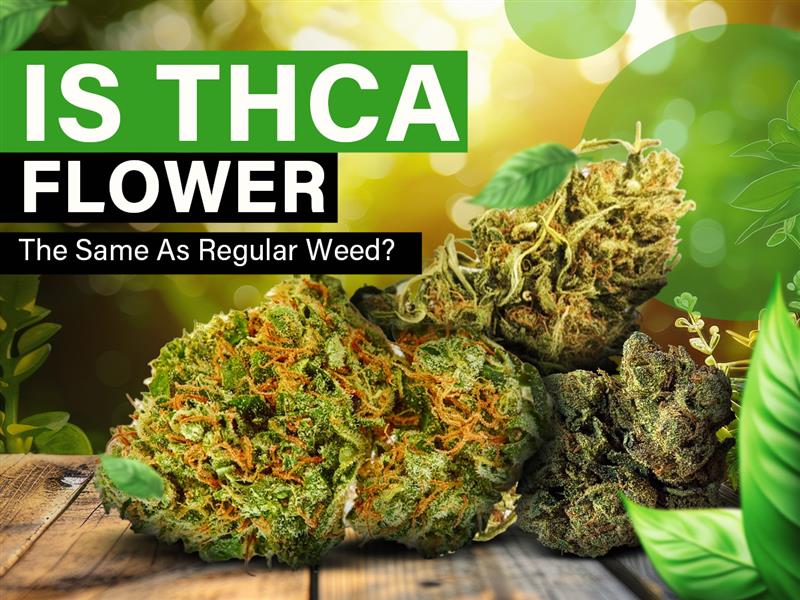Cannabis enthusiasts often encounter the terms "THCA flower" and "regular weed" in discussions about cannabis products. Is THCA flower the same as regular weed? While both originate from the same plant—Cannabis sativa—their chemical compositions, effects, and legal statuses differ significantly. Understanding these differences is crucial for consumers seeking specific experiences or navigating legal landscapes.
What Is THCA?
Tetrahydrocannabinolic acid (THCA) is a naturally occurring cannabinoid found in raw cannabis plants. It serves as the precursor to tetrahydrocannabinol (THC), the primary psychoactive compound responsible for the "high" associated with cannabis use. In its raw form, THCA is non-psychoactive and does not produce intoxicating effects. However, when exposed to heat through processes like smoking, vaping, or cooking, THCA undergoes decarboxylation—a chemical reaction that removes a carboxyl group, converting THCA into THC.
What Is Regular Weed?
"Regular weed" typically refers to cannabis that has undergone decarboxylation, either naturally over time or intentionally through heating methods. This process activates THC, making it psychoactive and capable of producing the characteristic effects sought by most cannabis users. Regular weed is cultivated, harvested, and processed to maximize THC content, ensuring potency and consistency in its effects.
Key Differences Between THCA Flower and Regular Weed
1. Chemical Composition
The primary distinction lies in their chemical makeup. THCA for sale is rich in THCA but contains minimal THC. In contrast, regular weed has undergone decarboxylation, resulting in high THC levels. This difference is crucial for understanding their effects and legal classifications.
2. Psychoactive Effects
THCA flower, when consumed raw, does not produce psychoactive effects due to the absence of THC. Regular weed, with its activated THC, induces the typical "high," including euphoria, altered perception, and relaxation. Therefore, the consumption method determines the psychoactive experience.
3. Legal Status
In many jurisdictions, cannabis is regulated based on its THC content. The 2018 Farm Bill in the United States legalized hemp-derived products containing less than 0.3% THC by dry weight. THCA hemp flower for sale, with its low THC content, often falls under this threshold, making it federally legal in certain areas. Regular weed, however, typically exceeds this THC limit and remains subject to stricter regulations.
4. Consumption Methods
To experience the psychoactive effects of THCA flower, it must be heated to convert THCA into THC. Methods include smoking, vaping, or cooking. Regular weed is usually consumed in its decarboxylated form, ready to produce immediate effects upon use.
5. Health Considerations
Some users prefer THCA flower for its potential therapeutic properties without the intoxicating effects of THC. THCA is being studied for its anti-inflammatory and neuroprotective properties, though research is still in early stages. Regular weed's THC content can offer relief for various conditions but may also lead to side effects like anxiety or impaired motor skills in some individuals.
Similarities Between THCA Flower and Regular Weed
Despite their differences, THCA joints and regular weed share several commonalities:
-
Origin: Both come from the Cannabis sativa plant.
-
Terpene Profiles: They contain similar terpenes, contributing to their aroma and flavor.
-
Cultivation: Grown using comparable agricultural practices.
-
Potential Benefits: Both are being explored for various therapeutic applications.
Choosing Between THCA Flower and Regular Weed
The choice between THCA flower and regular weed depends on individual preferences and needs:
-
For Non-Psychoactive Effects: THCA flower is suitable for those seeking potential health benefits without the "high."
-
For Psychoactive Experiences: Regular weed is appropriate for users desiring the traditional cannabis effects.
-
Legal Considerations: In areas with strict cannabis laws, THCA flower may offer a legal alternative.
To Conclude
While THCA spray or flowers and regular weed originate from the same plant, their differences in chemical composition, effects, and legal status make them distinct products. Understanding these differences allows consumers to make informed choices based on their preferences and legal considerations. Whether seeking therapeutic benefits without intoxication or the full spectrum of cannabis effects, both options have their place in the diverse world of cannabis consumption.
Also Read: Carts Vs Disposables
Frequently Asked Questions
Can THCA flower be used in edibles?
Yes. THCA flower can be infused into edibles, but it must be heated first to decarboxylate the THCA into THC, activating psychoactive effects and flavor compounds for consumption.
Does THCA flower have a taste difference from regular weed?
THCA flower tends to have a fresher, more herbal flavor, as it is unheated. Regular weed may taste more roasted or earthy due to decarboxylation during preparation.
How should THCA flower be stored?
Keep THCA flower in a cool, dark, and airtight container. Proper storage preserves potency, flavor, and freshness while preventing degradation of cannabinoids and terpenes over time.
Can THCA flower lose potency over time?
Yes. Over time, THCA can slowly convert to THC naturally or degrade if exposed to heat, light, or oxygen. Proper storage slows this process significantly.
Is it safe to mix THCA flower with regular weed?
Yes, you can mix THCA flower with regular weed. Doing so allows users to balance non-psychoactive and psychoactive effects, creating a tailored experience based on preference and desired intensity.


